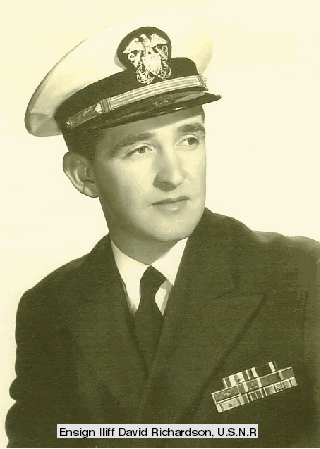|
Next, I had to find something to sew up the gaping wound. All I could find was some course abaca fiber. Abaca is what the Filipino call Manila hemp. Twine and rope are made from this plant, also a hot whiskey called Tequila. I did not know what kind of a stick to use. My book did not have the answer for that either. I had to use pliers to push the big sailing needle in and out. The young Filipino was watching me as I yanked onto the needle with my pliers. He never once uttered a single sound, although the pain had to be acute. He said, "I like the pain, for it tells me that I am still alive."
It took seven long painful stitches to sew up the opening. They were waiting for me when I came out of the hut. People from everywhere were there, even the young man's wife. They had been afraid to come in to help, because of the blood and wound. Even his wife did not have the strength to come in and help. Sadly I said to them all, I am sorry but he will not live. "At least he will not have the mark of the Japanese on him when he goes to God," one said. "He will have the mark of the American when he goes to God. That is much better for that is the mark of love."
Although I did the very best that I could do, I was right. And everyone was satisfied with the efforts. But the young Filipino man would die that very evening.
Suddenly, we heard the unmistakable cry of the Bojong bird, and everyone just vanished into the jungle. We could not tell if this was a real Bojong bird or a native using a Bojong to warn us.
A Bojong was a conch shell with a hole cut in the end. A conch was a large spiral shell of a marine mollusk. This was used to warn us of approaching Japanese. A Bojong bird was a large parrot type of jungle bird.
(The natives could not pronounce his unusual first name, Iliff, so he went by his middle name, David. David Richardson was born in Denver, Colorado. His father was a Methodist minister, and his mother a school teacher. She could teach Latin, Music, English, or History. So he inherited a high degree of intelligence from each parent. He is a slender person of average height, with a somewhat handsome face. His hair is an unruly brown, making it hard to comb down. In early 1940, at the age of twenty two, he was already an Ensign in the United States Navy. He came to the Philippines onboard the U.S.S. Bitttern, a mine sweeper. When WWII started, he transferred to the famous "expendable" motor torpedo boat squadron 3 of John Bulkeley. His torpedo boat was the famous PT-34, until it was blown up. Then, he involved himself in the Guerrilla movement on Leyte Island. David worked himself up to become Chief of Staff for Colonel Ruperto Kangleon. Ultimately, he became head of the Radio Network which would light General MacArthur's way back to Leyte. This is the Major Richardson of the Philippine Guerrilla Army that the Japanese posted a 10,000 (ten thousand) peso reward for.)
The Japanese were constantly monitoring our radio broadcasts, trying to pinpoint our location. Some months we had to move two or three times. They would also send out a patrol of fifty to search for us. My own radio station headquarters were near the village of Tacloban on Leyte.
The Filipinos were afraid of the Japanese because of their barbaric tactics, but they would still help hide us, if they could. The Japanese began to gather up all the Conch shells they could find. Any native found with one would be shot. But this did no good, for the Filipinos could imitate the cry of the Bojong bird very well.
Besides the Japanese patrols that were sent out, we also had to watch out for the "BC," meaning Bureau of Constabulary, which was Filipino police working for the Japanese. They are hated by the natives, as they raid their houses to loot and burn, but they were not nearly as barbaric as the Japanese were.
In spite of all of the war actions that were all around, the Filipinos loved to have a good time.
I certainly had to get used to their eating habits, especially their meat. They love to eat snakes, mostly large pythons and wild pigs. But I never did develop a taste for their monkey meat. It is what they do with their meat that really knocks you. The meat is all tough, so to tenderize it, they leave it out in the sun for days. Then it is burnt a little bit in a fire; that is their idea of cooking.
Last Saturday they had a big fiesta and a big cock fight was the main attraction. There was a lottery with a first prize of two thousand pesos. Little numbered balls were put in a large mahogany cylinder. Twenty balls rolled out one by one into a glass maze. They rolled around until each one dropped into a numbered basket. The baskets were numbered according to the fighting cocks they had. If your ticket drew a cock, you were in the running for the big money. The twenty roosters were all put in a big pit together and fought a free-for-all. The two thousand pesos ($1000 American dollars.) went to the ticket holder on the winner of the free-for-all. But there was a prize for everybody who drew a cock. What a bloody mess that free-for-all turned out to be. But the Filipinos enjoy cock fights, the way we Americans do football or basketball. My main team was ten United States Army Air Force enlisted men, who had escaped hidden in a Wrigley Spearmint Gum wagon and one sailor off my old PT 34 Torpedo boat. We were regularly receiving supplies and firearms from submarines while our radio stations were keeping tabs on Japanese movements and warships for General MacArthur .
"Listen, do you hear that? It is the cry of the Bojong bird. I must be going… Good-bye!"
Ensign Iliff David Richardson, U.S.N.R., was promoted to Lieutenant and awarded by General MacArthur the Silver Star Medal with oak leaf cluster in lieu of a second silver star, and in addition, wore a blue ribbon with an oak leaf cluster representing two Presidential Unit Citations.
Sources:
American Guerrilla in the Philippines by Ira Wolfert
The Military Channel on Television.
.
|
|



